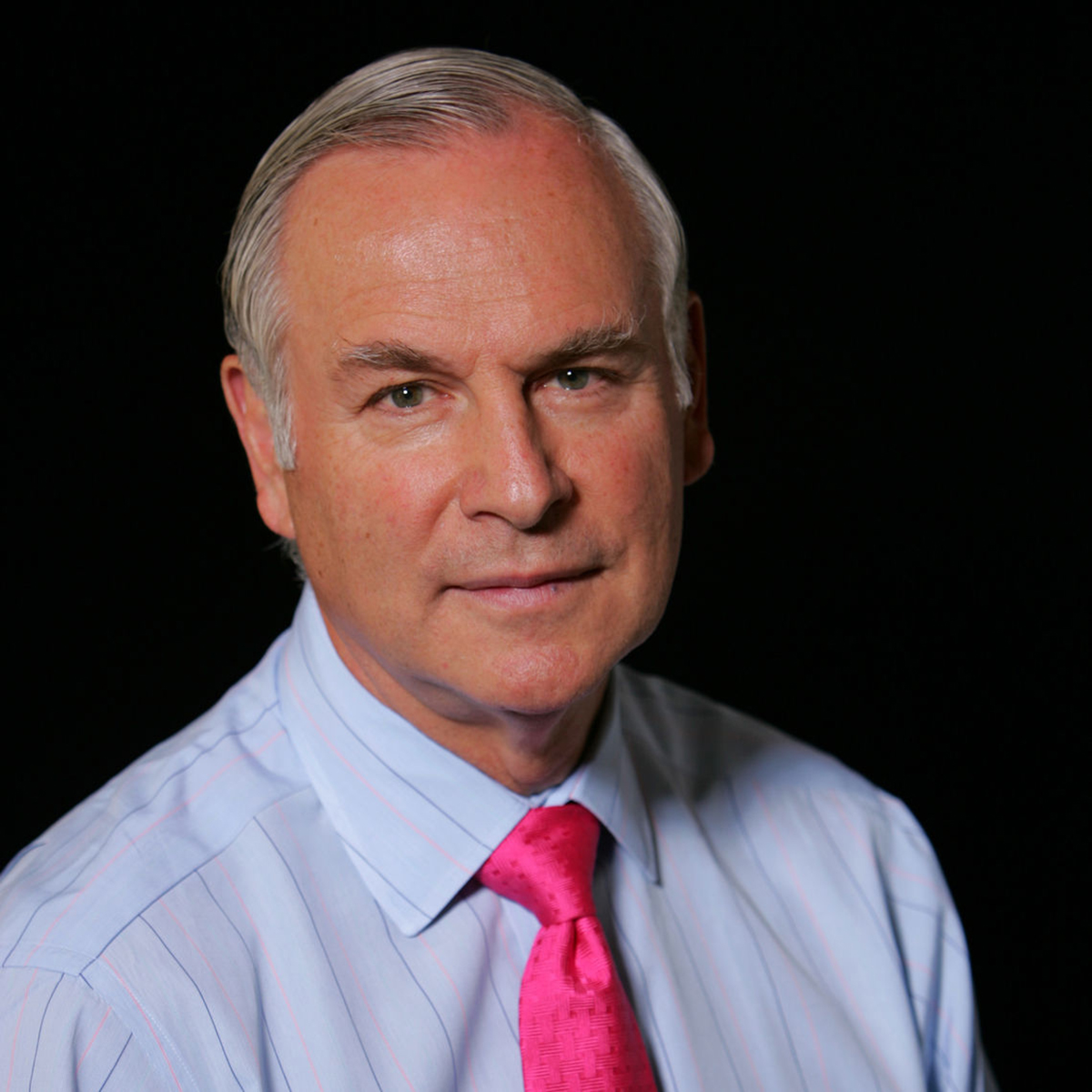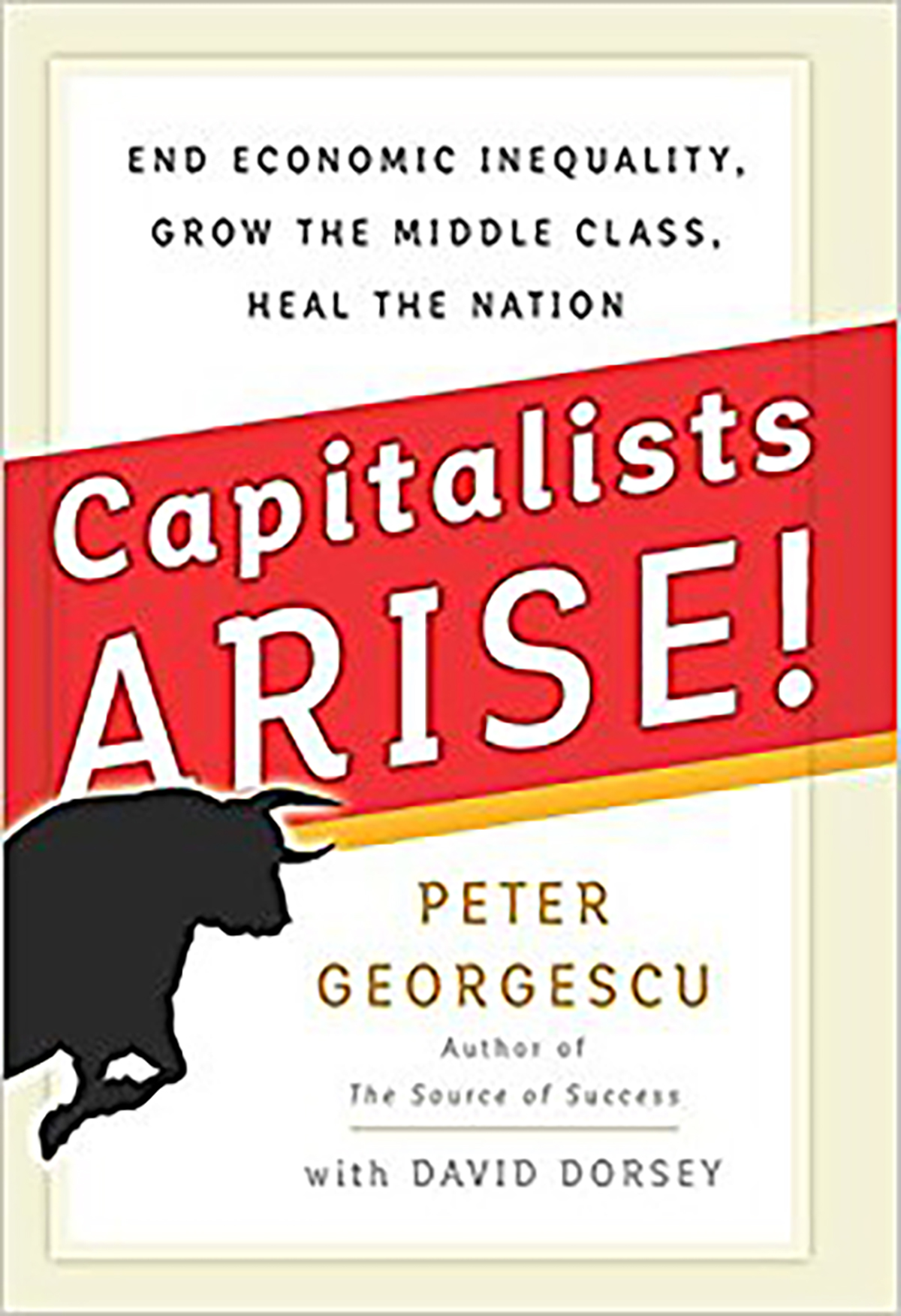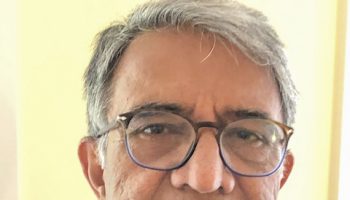Peter Georgescu, former CEO of the global marketing and communications company Young & Rubicam, will hold a book signing at 1 p.m. Thursday at the Chautauqua Bookstore.
His book Capitalists Arise! was released May 1 and is an expansion of his 2015 New York Times article “Capitalists, Arise: We Need to Deal With Income Inequality,” which generated more than 800 comments on the Times website.
“I’m very concerned because the problem of inequality is far more severe than most people understand,” he said. “This situation is not sustainable.”
 As he wrote in his Times article, 40 percent of Americans “are broke. Every year they spend more than they have.”
As he wrote in his Times article, 40 percent of Americans “are broke. Every year they spend more than they have.”
Meanwhile, for the top 20 percent of Americans, “life is as good as it gets,” he said.
“The reason (for) writing the book is to more broadly, more deeply, explain the problem, and then challenge business to say that business has something to do with it,” he said.
Capitalists Arise! explains how income inequality grew, how technology and globalization are involved and what role business and corporations play. It incorporates ethnographic interviews, U.S. Bureau of Labor statistics and the expertise of economist Andrew Terrell, who guided Georgescu “by the hand through the complexities,” Georgescu said.
“American corporations maximize short-term shareholder values,” he said. “The wages have been flat since 1980. Profits went up, productivity went up, innovation went up — and wages have been flat.”
The stagnation of wages means that for those Americans who aren’t in the top fifth percentile, “the American dream is gone,” Georgescu said. “They don’t believe that they or their children will have the opportunities that the other 20 percent have.”
Georgescu’s own story of the American dream is an exceptional one.
“You got a guy with a long story here,” he said.
Born in Romania, Georgescu was sent to a hard-labor work camp at the age of 9 after the Iron Curtain fell. His parents, who were in New York on business and could not return to Romania, brought international attention to his case, which eventually led to intervention from former President Dwight Eisenhower, and Georgescu’s freedom.
A teenager when he arrived in the United States in 1954, Georgescu did not speak English and hadn’t attended school in several years. But his case had captured American interest, and he was invited to attend Phillips Exeter Academy in New Hampshire. He later earned an undergraduate degree from Princeton University and an M.B.A. from Stanford Business School.
He said “compassion and kindness” helped him achieve what he has.
“I was not the hero,” he said. “The heroes were the American people helping out.”
Now he wants businesses to help out their employees.
“I want businesses to pay fairly from the incremental value of what the employees contribute,” he said. “I’m not for redistribution of wealth. That’s not the point.”
This incremental value would be based on employees’ productivity and innovation. In this respect, Georgescu considers himself a proponent of meritocracy, “absolutely.” He doesn’t see a tax on the rich as efficient.
“I became the best Peter Georgescu I could be,” said Georgescu, who has been a Chautauquan for 20 years. “Not better than anybody, just the best me. I think that’s the definition of the American dream. To be the best you can be. And that’s what’s not happening today.”




